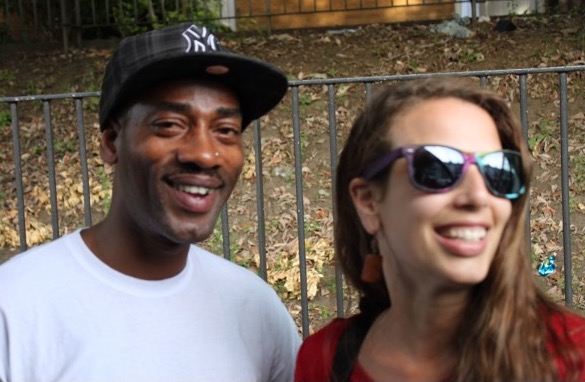Dr Anna Waldstein talks about her research with the Rastafari movement, and particularly how faith and spirituality help with the emotional challenges of an unsettled status on this weekly show about ethics and religious issues.
Dr Anna Waldstein and her research partner ‘Nenz Frano’ were interviewed on the Radio 4 Sunday programme about their British Academy-funded project on deportability and spirituality in the Jamaican diaspora.
The findings of the research were published online earlier this month in the journal ‘Social Anthropology,’ and show how various Rastafari spiritual practices help migrants cope with the threat of deportation and the lengthy appeals process. On the programme Nenz shared some of his experiences as a (formerly) deportable migrant and the impacts on his British family. Anna contrasted this with her own run-in with the Home Office and discussed how and why Rastafari spirituality is particularly suited to help precarious migrants cope with life in the hostile environment.
We asked Waldstein how she came to collaborate with Nenz:
‘I met Nenz in 2013 while I was doing research on the Rastafari movement in London. Most of my research is focused on Rastafari healing, especially the use of herbal medicines. Nenz is a Jamaican ‘bush medicine’ enthusiast and began working with me, first as a voluntary research assistant and later (after I secured some small grants) as a formal, paid community researcher. In addition to sharing strong interests in herbal medicine and spiritual healing, Nenz and I have both suffered in the hostile environment for immigrants. While my family life and career were disrupted for about a year when the Home Office threatened me (and my family) with administrative removal, Nenz had to wait more than eight years for his case to be resolved.’
‘Sadly, I met many other Rastafari migrants during my research who have had similar immigration issues. In 2017 I was awarded a small grant from the British Academy so that I could employ Nenz to help me research how Rastafari migrants cope with long-term deportability. Using an intersubjective ethnographic approach we found that restrictions against working during deportation appeals leave Rastafari men with the options of idleness, odd jobs in the informal economy or crime (typically selling drugs). Rastafari men find the discipline required to survive deportability through spirituality and engage in a variety of bodily rituals to generate positive energies, which help them remain calm and healthy. The case of Rastafari migrants in the UK reveals a need for further expansion of ethnographic research into hostile environments from intersubjective perspectives that explore spirituality and deportability in diaspora families.’
The programme aired on 5 December and can be heard on the BBC Sounds website. Listen here at 14:00 minutes in.

